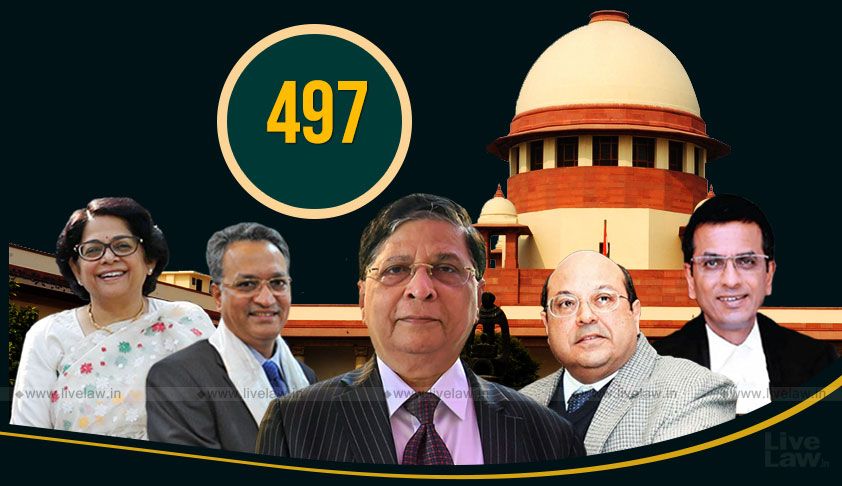Adultery- Crime Or Moral Wrong?
May 16, 2019 • 6 views
INTRODUCTION
Adultery is defined as an act of sexual intercourse which does not amount to the offence of rape. Section 497 of the Indian Penal Code dealt with an offence of 'Adultery' and related penal provisions. It is basically an act of sexual intercourse by a man with a married woman who he knows is someone's wife. Such activity does not constitute rape since here in Adultery the consent of the woman involved, is there.

PENAL PROVISIONS
Any man if it is proved that he has been involved in adultery,that is, if he is found to be guilty shall be punished with imprisonment of either description for a term which may extend to five years, or with fine, or with both. In such a case the alleged wife who was involved shall not be punished even as an abettor.

CONTITUTIONAL VALIDITY OF SECTION-497, IPC
The adultery law first came under challenge in 1951 in the case Yusuf Aziz v. State of Bombay where petitioner contended that the law of adultery violate the fundamental right of equality guaranteed under Articles 14 and 15 of the Constitution. The dominant argument before the court was that the law discriminated against men by not making woman equally involved in the adulterous relationship. It was also argued that adultery law gave a sort of licence to women to commit the crime. But the court held the law valid.

Then in the case Sowmithri Vishnu v. Union of India the law was again challenged on the constitutional grounds that the law confers upon the husband the right to prosecute the adulteror but it does not confer any right upon the wife to prosecute the woman with whom her husband was involved. Also, the the law gave a free licence to husbands to have extra-marital affairs with unmarried women. The Supreme Court of India again rejected the contentions and held that women can not be held guilty since there is a common belief that it is a man who is seducer and not the woman. Also, in order to protect the sanctity of marriage, men are not allowed to prosecute their wives and for the same reason wives are also not allowed to do so.

PRESENT STATUS OF ADULTERY
In December 2017, Joseph Shine filed a petition challenging the section. The petition was referred to five-judge constitution bench, admitting that the law does seem to be archaic.

The bench gave following observations:
1. Section 497 is arbitrary as wife cannot file a complaint against the lover of her husband.
2. The law is against Article 14 and 15 of the Constitution.
3. It was held that criminalizing Adultery is like entering an extremely private sphere that is, in the matrimonial life of individual which is not fair.

As a result of contentions so argued on 27th September 2018 the Supreme Court of India struck down the century old law which was introduced during the time of British. It was held that since it was based on societal presumptions it does not be termed as a crime. Criminalising it would be against Article 21 of the Constitution which deals with Right to Life and Personal Liberty. By criminalising it would breach the right to dignity and personal liberty guaranteed under Article 21. Everybody has an autonomy over his/her choices with respect to his/her sexuality and it should be protected from being a topic of public discussion, that too in an open court. As a result, the act of Adultery is not a crime anymore but just a moral wrong.
